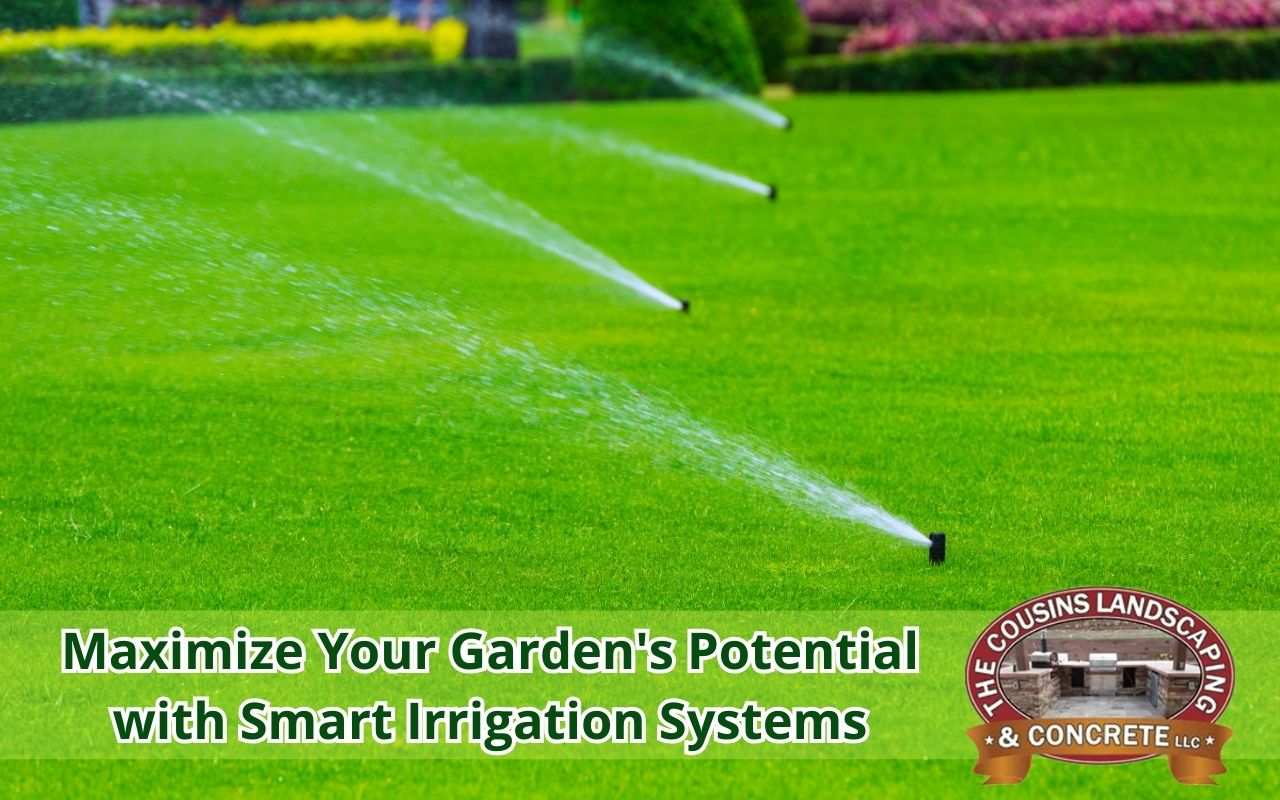
In Colorado’s unique climate, keeping gardens lush can be challenging. Smart irrigation systems solve this by using sensors, controllers, and weather data to manage watering effectively. These systems deliver the right amount of hydration at the right time, minimizing waste. By embracing this technology, gardeners enjoy thriving landscapes without constant manual adjustments. Learn more about professional help at our services page.
Understanding Smart Irrigation Systems
Smart irrigation systems combine advanced technology with efficient watering methods. Automated controllers receive data from soil moisture sensors and weather forecasts. With this information, the system adjusts watering cycles instantly. As a result, water is delivered exactly when and where plants need it. This eliminates the guesswork of manual irrigation and prevents waste. Additionally, remote access via smartphone apps allows users to monitor and adjust settings effortlessly.
Benefits of Smart Irrigation Systems
Smart irrigation systems provide several valuable benefits. They conserve water by adjusting watering schedules based on soil conditions and forecasts. This reduces runoff and evaporation. Furthermore, plants receive hydration at optimal times, leading to stronger root systems and healthier growth. These systems also reduce manual maintenance, preventing errors that can harm plants. With consistent care, gardens become more vibrant and productive, while sustainability is supported through efficient resource use.
Components of a Smart Irrigation System
A well-designed smart irrigation system includes controllers, valves, soil moisture sensors, and weather data integration. Controllers serve as the brain, processing inputs and scheduling watering. Sensors measure soil moisture at different depths, ensuring water is delivered when required. Valves regulate flow, while weather data prevents unnecessary watering during rain. Together, these elements ensure water is used efficiently across your garden zones.
Choosing the Right Smart Irrigation System
Selecting the right smart irrigation system requires evaluating your garden’s size and plant types. Larger gardens may need multi-zone controllers with Wi-Fi or cellular connectivity. Smaller gardens often function well with basic sensor setups. Climate also plays a role. In areas with sudden weather shifts, like Colorado, advanced features such as frost-delay sensors can be essential. For tailored support, consider contacting experts through the contact page.
Installation Process of a Smart Irrigation System
Installing smart irrigation systems begins with planning zones and mapping pipes. Controllers should be placed within power and Wi-Fi range. Valves and sensors must be installed in each zone. After setup, the system is programmed to fit plant-specific watering needs. Testing for leaks and calibration ensures accurate operation. Following these steps guarantees long-lasting efficiency for your garden irrigation system.
Customizing Watering Schedules for Plant Health
Smart irrigation systems allow gardeners to create personalized watering schedules. Trees may need longer, less frequent cycles, while seedlings thrive on shorter sessions. Weather data integration refines schedules by reducing watering during rain or increasing it during heat waves. This customization maintains plant vigor and conserves water simultaneously.
FAQ: Smart Irrigation Systems
What makes smart irrigation systems different from traditional sprinklers?
They adjust watering based on real-time soil and weather data, ensuring precise hydration.
Can smart irrigation systems save water?
Yes, they reduce waste by delivering water only when needed, supporting sustainability.
Do I need Wi-Fi for smart irrigation systems?
Most systems work best with Wi-Fi, though some offer cellular or hub connectivity.
Are smart irrigation systems suitable for small gardens?
Absolutely, they benefit both small yards and large landscapes by optimizing watering.
Monitoring and Maintaining Your Smart Irrigation System
Smart irrigation systems require regular monitoring through apps or dashboards. Alerts notify users about leaks, clogs, or irregular flow. Routine maintenance, such as cleaning filters and calibrating sensors, ensures continued efficiency. With updates and proper care, these systems last longer while providing consistent hydration. For reliable landscaping services, explore our main page and see how experts can enhance your garden.
Embracing a Lush and Efficient Garden with Smart Irrigation
Transitioning to smart irrigation systems turns gardening into a precise, enjoyable process. Real-time data ensures your plants thrive without wasted effort. These systems save time, conserve water, and promote sustainability. Whether for a small garden or a large estate, adopting this technology creates a flourishing, efficient outdoor space. Connect with professionals today to elevate your garden experience.
